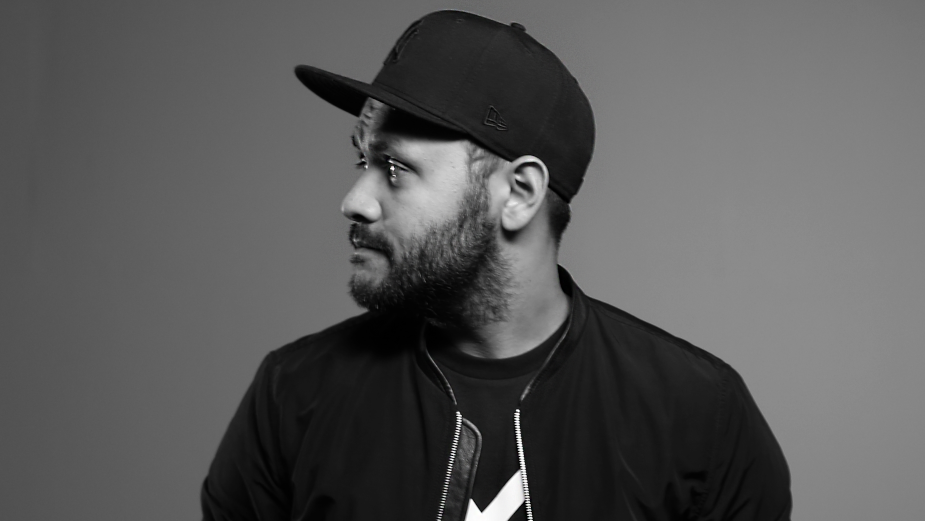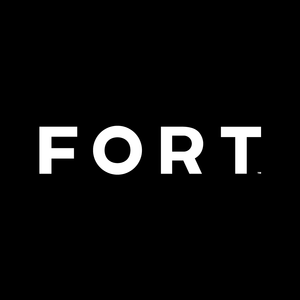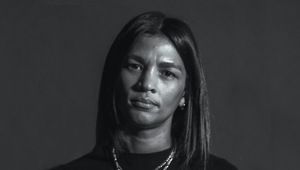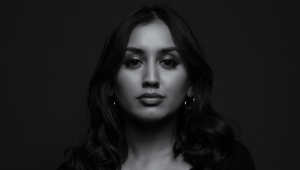
The Directors: Amr Singh

Amr Singh is an international award winning commercials and entertainment film director from South Africa.
Having worked with some of the top creative agencies and brands in the world, Amr’s resumé extends to Hollywood, directing Hollywood A-listers including Kevin Hart. Globally awarded, Amr’s work has garnered critical acclaim in LA, Rome, London and Bali, and has won the SHOTS YDA Award, the coveted Van Gough Award at the Amsterdam International Film Festival, and a Gold Craft for Directing from the Promax Awards.
With an astute understanding of contemporary storytelling in a period of technological disruption, Amr’s ability to craft compelling brand narratives has led to his emergence as one of the most exciting working directors today.
Name: Amr Singh
Location: South Africa
Repped by/in: FORT
Awards: Promax Gold Craft in Directing, Bronze Loerie, Van Gough Award at Amsterdam International Film Festival, Shots YDA, Silver Pendoring Award
What elements of a script sets one apart from the other and what sort of scripts get you excited to shoot them?
Our ambition as directors is always to tell strong and meaningful stories. Great advertising – and I mean the really great work – does this by finding a careful balance between two critical pillars.
Firstly, that the story cannot exist without the introduction or presence of the brand at hand. And I mean this in the most functional sense; the product or service on offer must drive the narrative. It’s either the catalyst or the resolution, but either way, the reason that the story exists.
And yet, secondly, if the logo didn’t appear at the end, the story should be strong enough, that it still warrants being told. When a script gets this right, it’s a very powerful thing. But it’s a balancing act, and one that is really fully realised at script phase.
When it is, I’m excited to get to work.
How do you approach creating a treatment for a spot?
I find that creating a treatment is a process, and a really competitive one at that. These days, you really need to expand on the idea, plus it, and present it as a coffee table book that takes the creatives on a personal journey. It can be tough, and the bar seems to be set pretty high.
I like to begin by taking some time – a day or two – to let the script live in my head. This gives me an opportunity to let the concept swim around in my mind a bit, hopefully connecting some dots. You start to see how the concept relates to your experiences, or things you chance about in everyday life.
Next, I sit down and write. I think it’s important to articulate the intention of the spot, thematically and conceptually. Once I’ve done that, I try to see how these foundational thoughts might impact the narrative itself. So, I may rewrite the script at this point.
Once I’ve gotten the new script down, I go into the visual and technical treatment. This typical means a breakdown of the visual style, locations, wardrobe etc. with references. Clients love references.
If it’s a performance spot, I’ll go into some detail around casting, and what we’re looking for. And finally, I’ll look at edit, sound design etc. I like to wrap up the treatment with my final thoughts on the project as a whole, and what I believe the next steps to be.
When pitching to a team that you’ve worked with before, I think that it’s important to not offer them the same insights and formulas again and again. However, director Jordan Brady recently gave me some good at advice on return pitches: “Stick to the creative – that’ll win over the fancy pants stuff.”
If the script is for a brand that you're not familiar with/ don’t have a big affinity with or a market you're new to, how important is it for you to do research and understand that strategic and contextual side of the ad? If it’s important to you, how do you do it?
Early on in my career, I did a lot of regional work in the United Arab Emirates. I’m from South Africa, so I wasn’t very familiar with the cultural nuances of the audience, or the legacy of the brands that I was working on. Of course, it’s important to do research, but your best starting point are the creatives that are briefing you.
Go into the brief with your questions at the ready. You should be able to write down five or six questions that can start to give a rich picture of the brand and the contextual side of the ad, in relation to the target market. Once I started doing this, I began doing it for spots in my own region, and brands that I even grew up with.
For you, what is the most important working relationship for a director to have with another person in making an ad? And why?
Filmmaking is essentially a collaborative effort, and as a director, you’re sitting at the intersection of a number of key role players.
If you fail at crafting a script in a way that is better than what the creative team had imagined at the onset, then you’ve fallen short of your role on the project. So, on the one hand, your relationship with the creative team is incredibly important.
On the other side, you’ve got your crew, and the post-production team, that are going to bring your efforts to life. I find that I typically spend a lot of time talking to the cinematographer and the production designer. Together, we need to build a world that sets the stage for the story, so that relationship is incredibly important.
What type of work are you most passionate about - is there a particular genre or subject matter or style you are most drawn to?
Gender and cultural stereotyping in advertising is one of the most dominant re-enforcing contributors to generations of women and men falling into an archaic expectation of personas and stereotypes in society. Advertising can speak volumes to some serious issues around personal identity.
Spots that challenge the status-quo really excite me.
What misconception about you or your work do you most often encounter and why is it wrong?
I often get pegged as a 'visual director'. Style really matters to me, which is why I put a lot of meticulous effort into realising a particular 'look'. But story-structure and performance are equally important to me, and sometimes I feel like the characters and their respective journeys are sometimes overlooked in my work.
Have you ever worked with a cost consultant and if so how have your experiences been?
I have. It’s a challenge that the producers have to deal with more than the directors, typically, but we feel them. Not all cost consultants are the same, and some have some very valid points that can help the job.
Often though, there’s a lack of context, and a misalignment of ambition. Our ambition is to create the best possible work. Theirs is concerned with the bottom-line. So, there’s always going to be some tension.
What’s the craziest problem you’ve come across in the course of a production – and how did you solve it?
Weather can often pose a not-so-unique threat to productions, and we’ve often come up with some very creative solves around shooting through inclement conditions. Also, COVID-19 have given us some special challenges that we’ve never had to deal with previously.
But the craziest problems are typically around travelling and in-country production teams. On a particular job for an ice-cream brand in West Africa, we were guaranteed an experienced technical team, and gear on the ground. I happened to be directing and DP’ing the spot, and we brought an Arri and glass with us into the country.
Upon landing, however, there was no crew or gear. So, we hired a carpenter as the grip, and together we built a dolly and tracks in pre-production. We mounted a garden chair on a door, with a space for the tripod in front, and set it on tracks built out of industrial piping used for gas. It worked.
How do you strike the balance between being open/collaborative with the agency and brand client while also protecting the idea?
This is a project dependent consideration. But typically, my strategy is to try and get them on onboard with the importance of protecting the idea, and my role within that. I have to remind myself that for some clients, this may be the only spot that they make this year, so they’re not as experienced, and they’re looking for certainty and something bankable for their brand. Of course, sometimes this isn’t the case at all.
Generally, though, I try to paint a picture of the journey that we’re on together. That the idea needs to become richer and more potent with each 'gate' that it travels through. There’s the first concept from agency that they approve. The treatment needs to outline a better way. The shoot day has to see it come to life better than that. The edit must sequence it in a way that is stronger than the original board…and so on.
I like to get them to buy into this idea of constant improvement, as a way to hopefully protect the idea along the process. It’s a strategy that has its moments…
What are your thoughts on opening up the production world to a more diverse pool of talent? Are you open to mentoring and apprenticeships on set?
We must do this. And we must create a culture of sharing, so that future is in good hands. When I started in this industry, filmmaking was a strange and secretive alchemy – often guarded by dismissive, sometimes rude, industry stalwarts.
Today, technology has democratised the ability to create content. It’s an egalitarian boom, and we need to be a part of making it as inclusive as it can be.
How do you feel the pandemic is going to influence the way you work into the longer term? Have you picked up new habits that you feel will stick around for a long time?
Yes and no. I think that the remote VT thing may be here to stay, but the nuts and bolts of filmmaking have largely remained in place.
We’ve always been a global industry, and taking briefs over a call, or presenting over a video conference is nothing new to our industry.
Your work is now presented in so many different formats - to what extent do you keep each in mind while you're working (and, equally, to what degree is it possible to do so)?
I must confess, I don’t find the proliferation of delivery formats to be much of a challenge. Ultimately, the various viewing platforms make sense to me, and once it makes sense, it’s not that difficult to make it intrinsic to how you shoot.
Even before all the formats, as a director, you work on a duality of purposes to each shot; “this master is a good lead into the story, but can also work as a nice confrontational shot later on”. Similarly, if you understand the shots purpose to work across platform, it becomes innate to frame accordingly, or time your beats to for tighter run times.
What’s your relationship with new technology and, if at all, how do you incorporate future-facing tech into your work?
I don’t mind it. I’ve shot for smart content management systems that can custom edit sequences to speak to 'the audience of one'. There’s still a place for timeless, well-crafted filmmaking. I guess we’ll have to wait and see how long that lasts.
Which pieces of work do you feel really show off what you do best – and why?
I don’t believe that I’ve created something that truly shows off my full potential yet. That’s the quest. The pursuit of creating the perfect representation of my best efforts. It’s coming.
All Gold - Age Old Debate
Doritos - Flamin' Hot
KFC - Kentucky Bucket
Telkom - Mo' Nice










